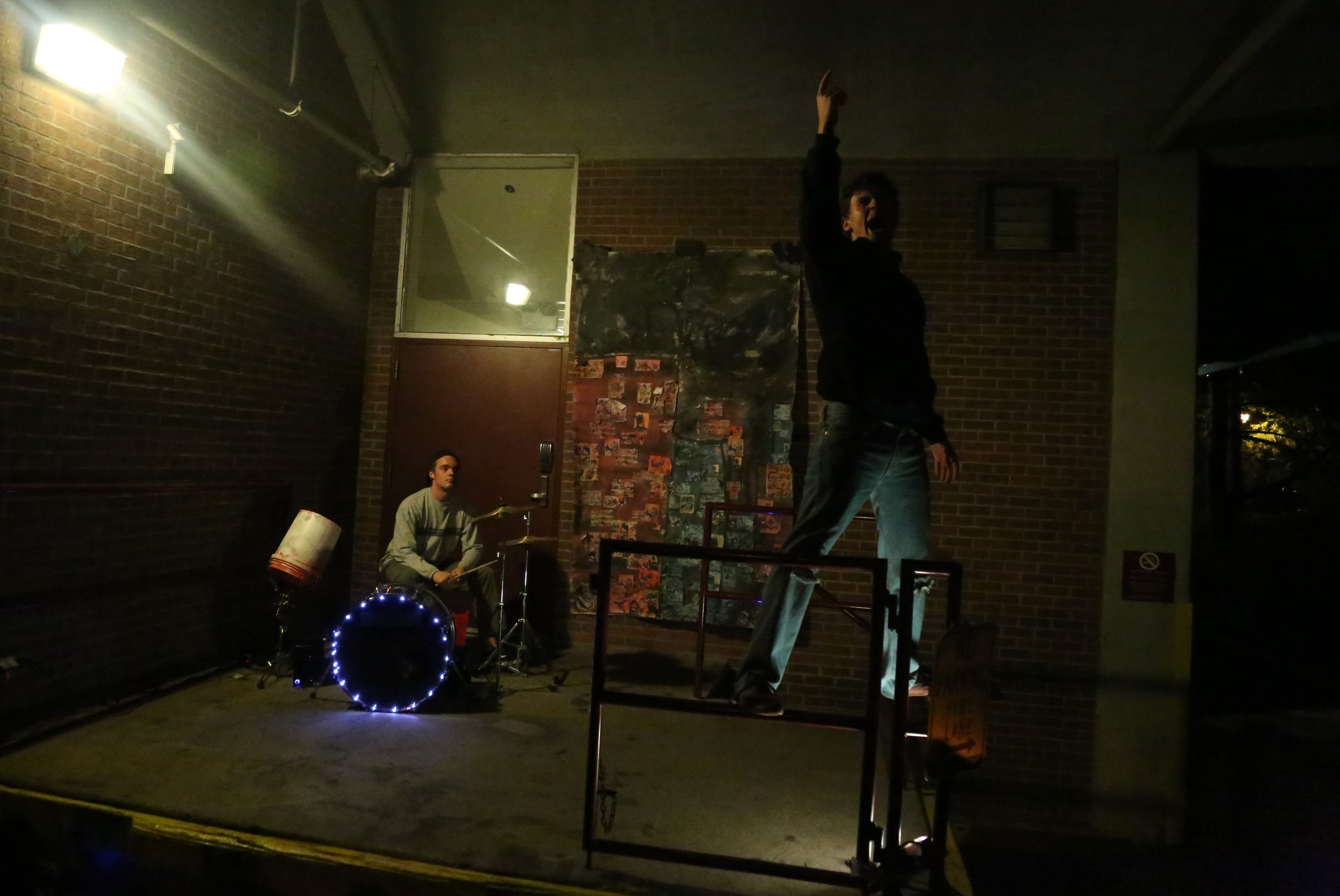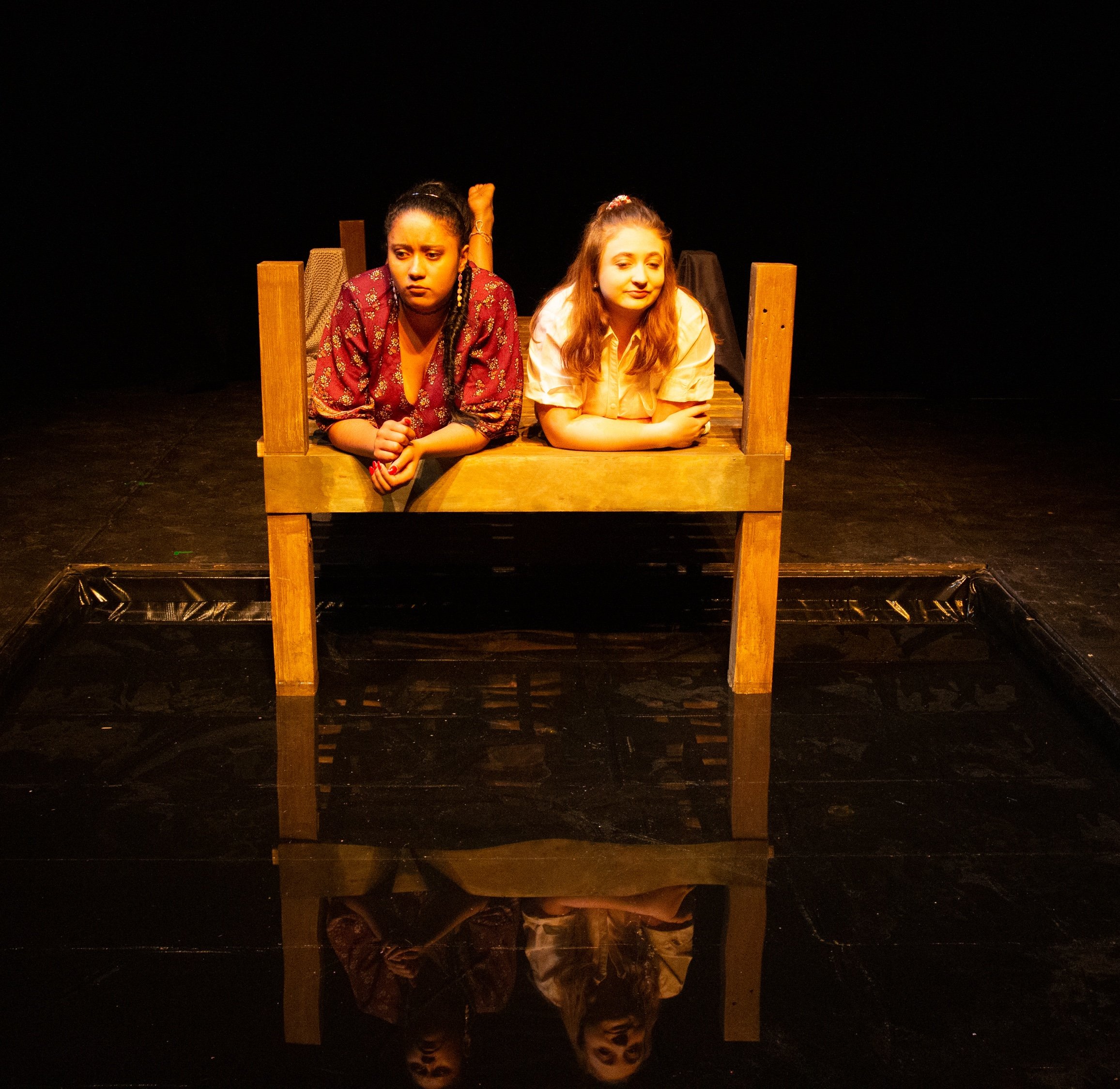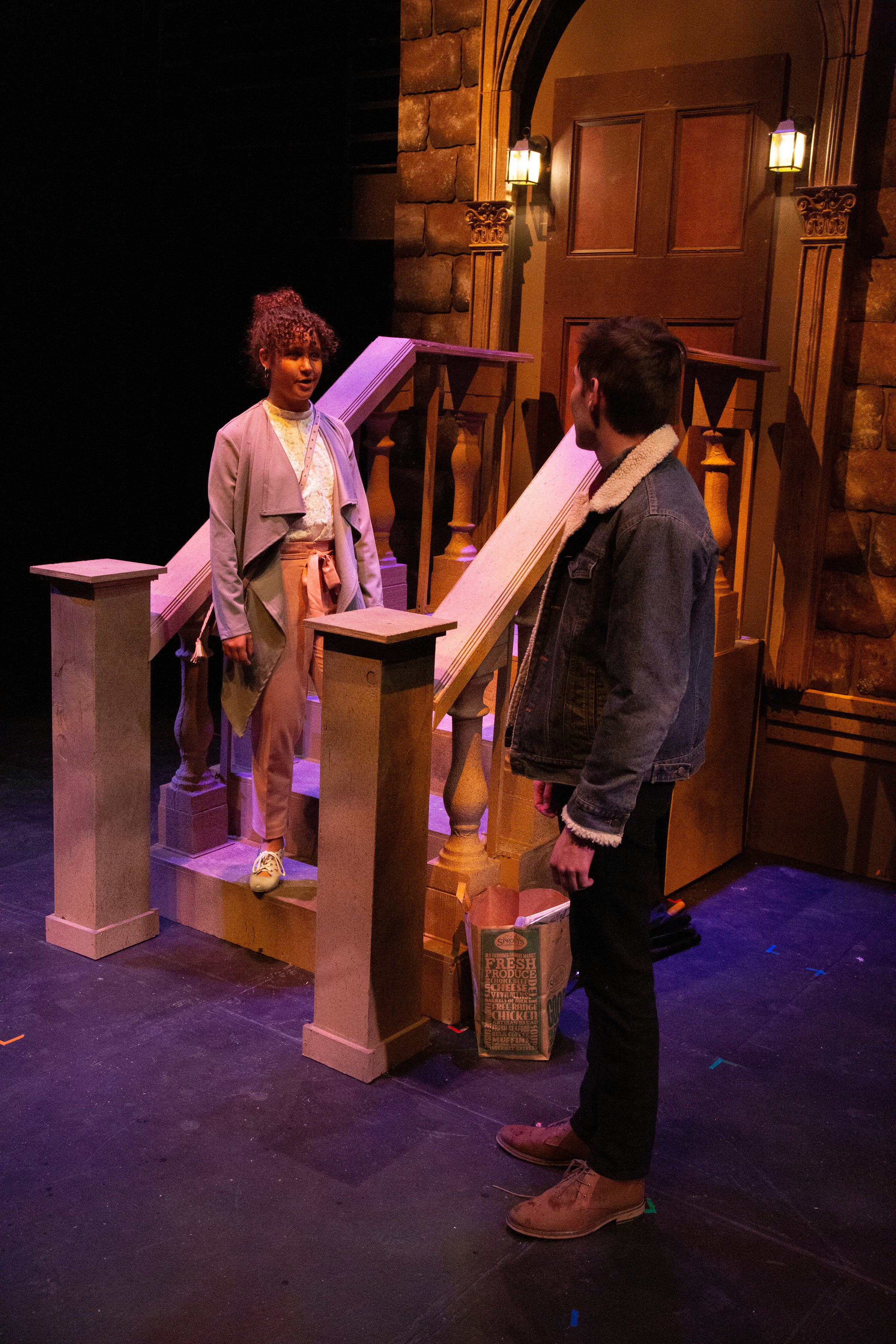
Senior Capstones









The Academic Role of Capstone
The culmination of each Theatre major’s required course of study is the Senior Capstone- each senior is responsible for directing and producing a 20-minute, fully produced production.
The goal of the Capstone process is to give the Seniors as much flexibility within the structure of the performance/rehearsal process. The shows are directed, designed and performed by undergraduate students.
During their time at DU, every theatre major, regardless of area of concentration, is required to take an acting, directing, and design course, but the capstone allows them to work outside their comfort zone. Acting students grapple with scenery and costumes, design and technology students work with expressing their ideas with actors. It is an excellent synthesis of a theatre student’s study over four years.
Who: Every Senior major is required to direct and produce.
What: A one-act play of their choice.
Where: The Byron Theatre, in a special “mini-arena” Rep configuration.
When: Two production cycles, each 4 weeks long, with Seniors assigned in equal groups.
How: Sometimes, we’re not sure, but we always make it work.
My Role in Capstone
We have a saying about Capstone:
The BEST part of Capstone is that it is a decentralized process where Seniors and their teams are in control.
The WORST part of Capstone is that it is a decentralized process where Seniors and their teams are in control.
Across the spectrum of our Seniors, we will have Stage Managers and Design students who are confident in the production process, but wary of the directing section, and performance students who are ready for directing, but don’t know what to do with the tech process. We then add student designers whose experience ranges from seasoned to complete newcomer- it’s planning and prep- sometimes it’s “cat herding”.
I spend my time setting up processes to guide the seniors through the steps of production: lists, handbooks, and a series of structured e-mails that go out on a regular schedule to the teams. Then guiding, mentoring, working on budgets, helping with drawings, fleshing out ideas- and sending those ideas into the Shop. Lighting has a Rep plot, and designers can add limited specials and learn to use the moving lights.
We spend the Winter working on the design process, and then the Spring making them real. Working drawings are split between myself and the Shop Supervisor, and it’s exciting for students to watch their drawings come to life.
One of the most important parts of my job is tech- with 4-5 small shows needing tech time, the faculty works with new designers and SMs to organize their time and use it wisely.